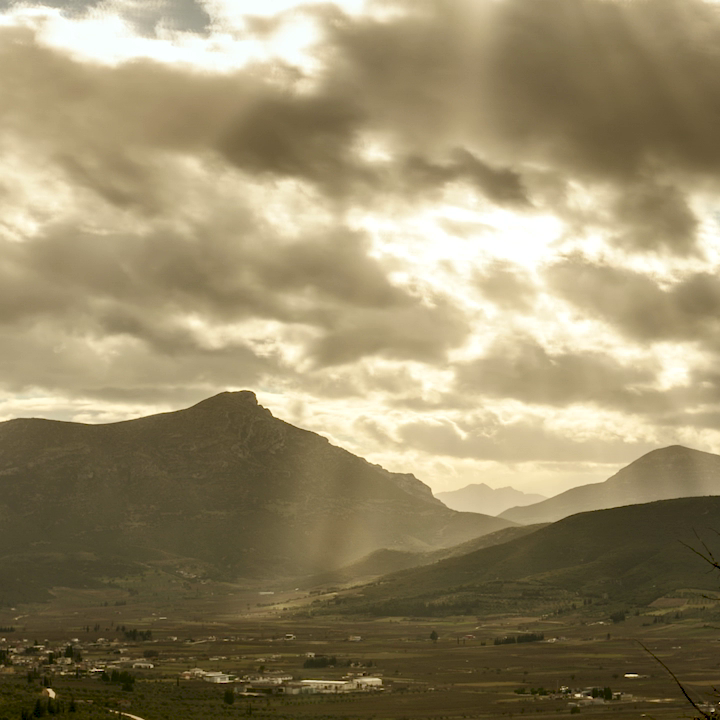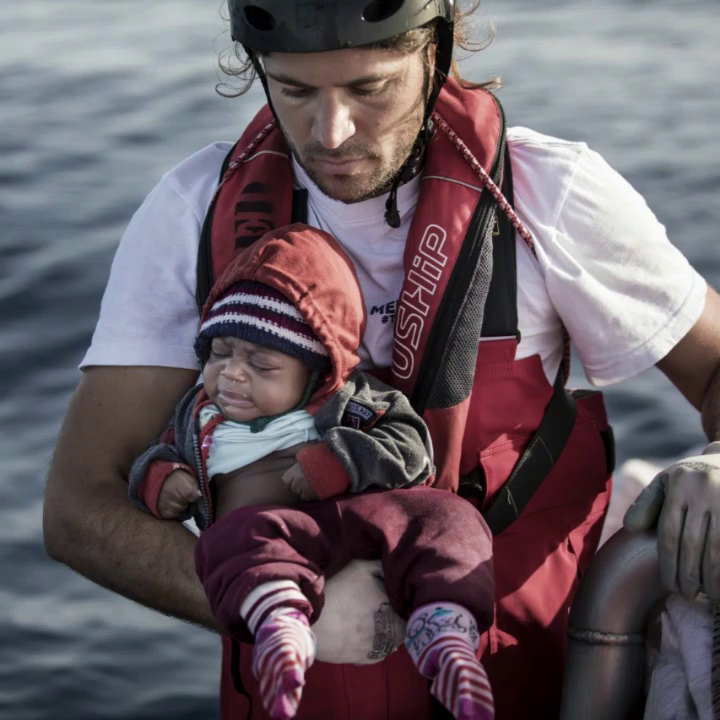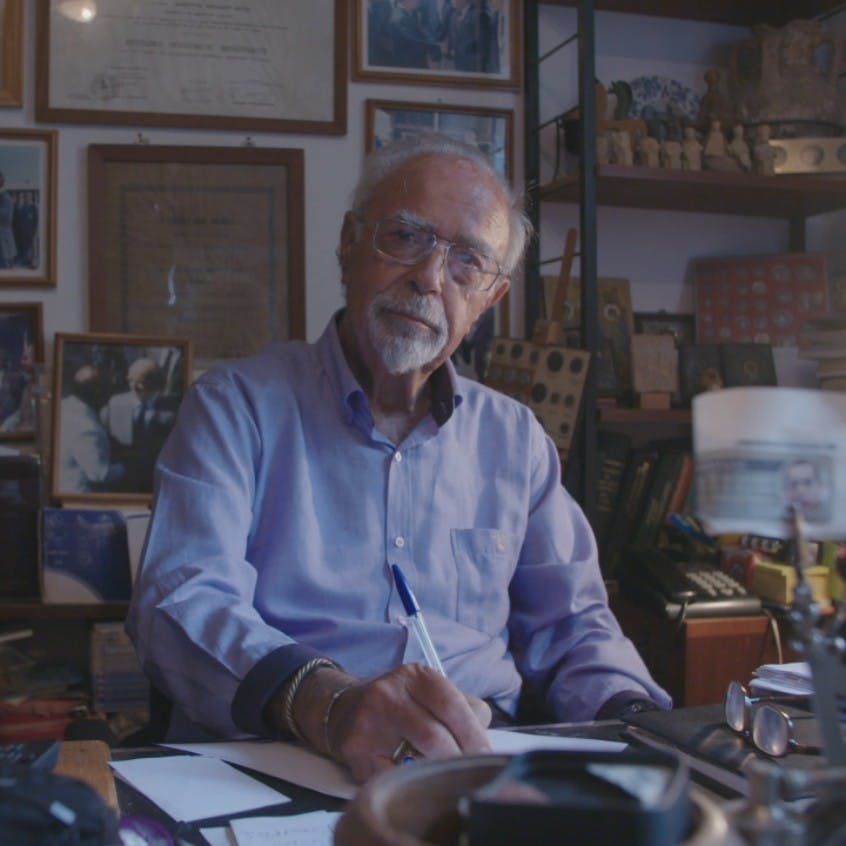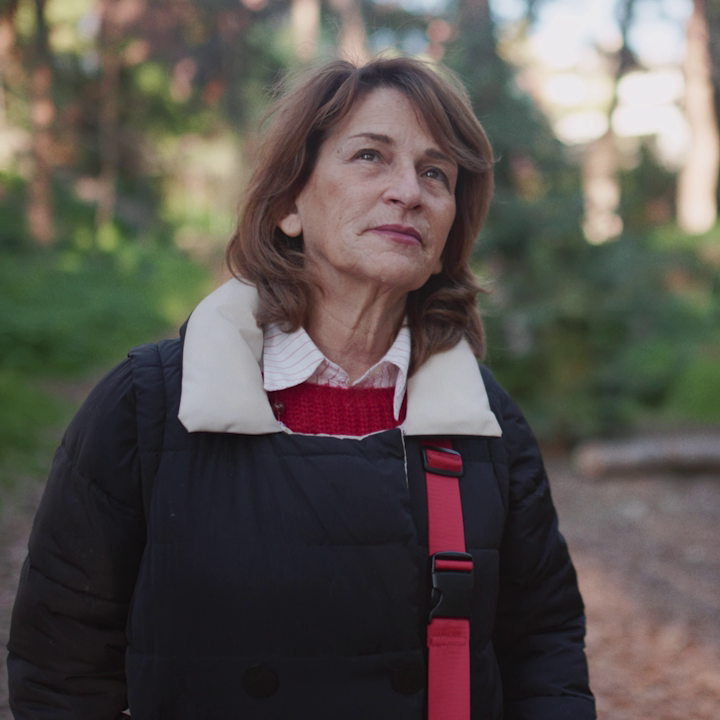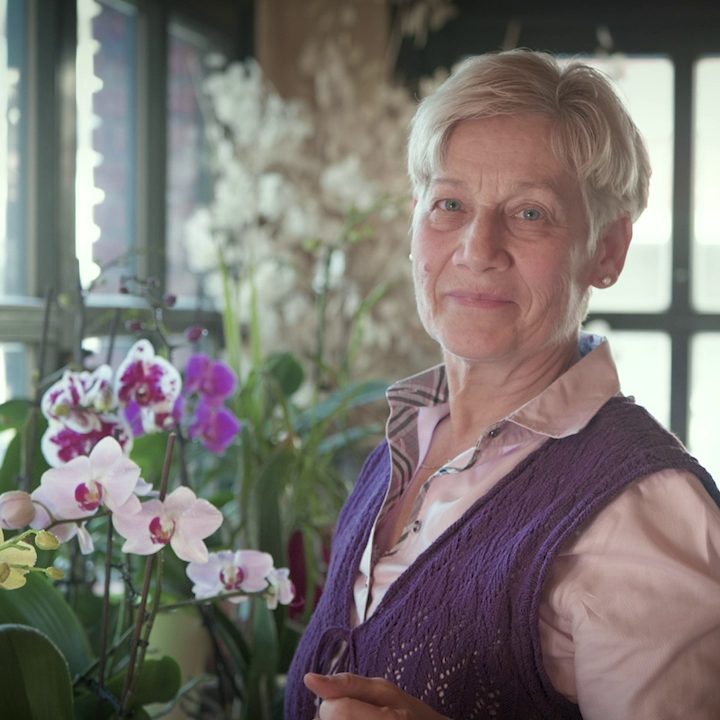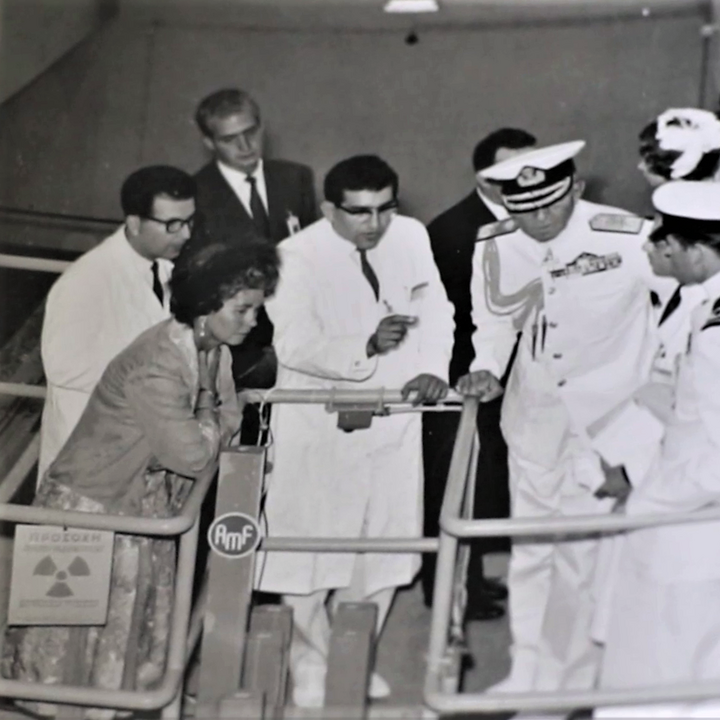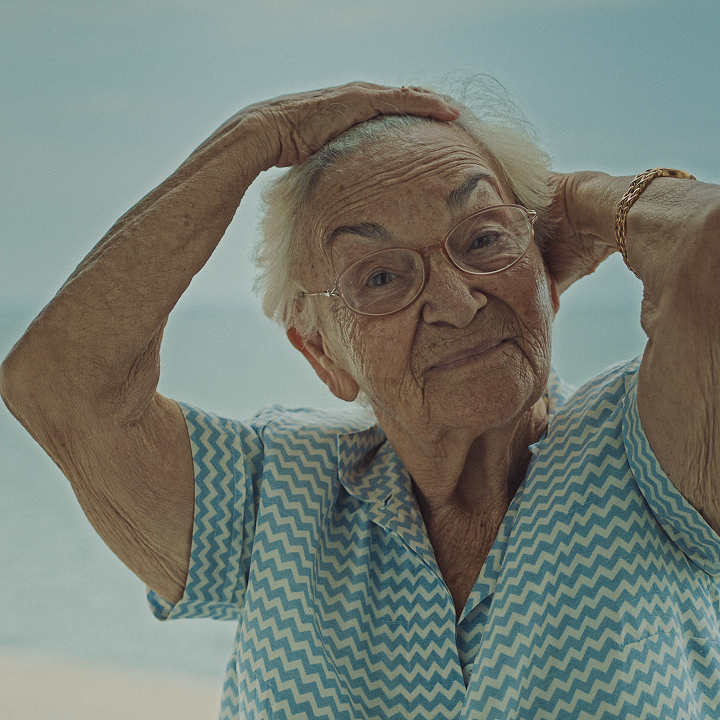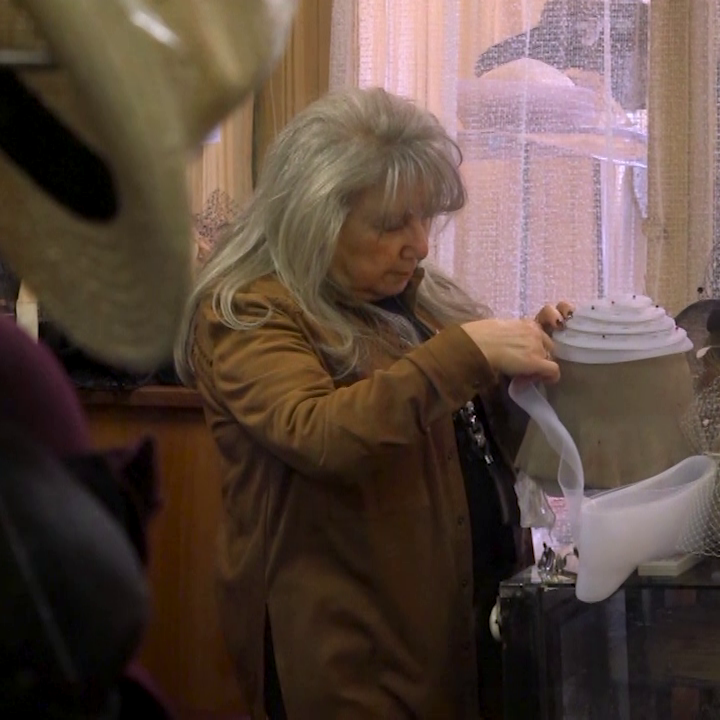I was born in Imbros. I was born in 1930, I am exactly ninety years old now. When I was young, we left and came to Prinkipo island. I grew up there. There is no better city than Constantinople! I’ve been around! Where haven't I been -- to India, China, America. I have seen no other, no other city like this!
My father used to tell me to learn a craft. At first I wanted to be a carpenter. I went, I worked as an apprentice for the carpenter for a year. Back in those times, all these carpenters produced this talasi as we call it here, how do you say it in Greek? Fine sawdust. Here in Constantinople, the pastry shops would spread this fine sawdust on the floor for cleanliness and it also smelled because it came from the wood. And when I would go to this pastry shop to sell them a can of it for twenty five grosi, there was a young lady there, I can’t forget her, they called her Mademoiselle Aristi, she was always caressing me.
I was young, ten years old, and she had told me: “Come here, and we will make a pastry chef out of you!”
I would say: “Me, a pastry chef, what for?”
She would say: “Come and you will see...”
She was a very lovely young lady! And I was a young lad... Women, of course, they are sweet themselves, my girl! So I went there to learn to be a pastry chef. I started out there. And I was paid five lira a month there. This was two kilos of sugar in the black market. Two dollars.
At Pera, from the tunnel all the way to Taxim, were probably fifteen or twenty pastry shops. I was fortunate enough to go to Constantinople, and go to this large hotel, which was also a pastry shop, all the old residents know it, it is called Tokatliyan. For me this was the University of pastry.
I knew nothing about all this, nothing. There was one guy, I can’t forget his name, his name was Nikola, he was from Russia, when they had come, he was a maître-d’hotel. He probably started drinking the minute he woke up, because he was bright red, but he was such a disciplined person... when he walked, everyone stood at attention. And he would come in the kitchen, go to the chef and say: “A mandarine givrée, a plombière and a bomb!” Now, I knew neither the one, neither the one nor the other! I happened to work with a pastry chef from Vienna, Monsieur Laert they called him, a great...
I said: “What are those?”
He replied: “You will see.”
He took the mandarin, cut it on top, emptied it out, took the juice, made a light cream, filled it back up, put the top back on, and took the mandarin as a mandarin, but they ate the insides with a spoon.
I would see something, and I immediately learned it. God gave me this gift. When I was seventeen, I became second chef there, so to speak. In this art, anyone who entered it, in order to become a chef, they had to be thirty or forty years old. I had the luck, not to say the skill, to shoot right up, you see. I was very lucky to be there and go to this hotel, that is, called Tokatliyan. I saw there, I saw this splendor...
This hotel, every single piece of its service, was silver. All the glasses, from the wine, to the champagne and even the water glasses, had written on them, they came from Paris, they had “Tokatliyan” written on them. Even the ashtrays had the “Tokatliyan” name on them. The greatest splendor that took place there was Christmas, I should mention this. Twelve hundred people, the Armenians, held a ball there. There wasn’t a single woman who didn’t come with a fur which was worth I don’t know how much. It was a great place. The grandeur of Pera was there.
There is a mirror there. And they say that Atatürk got together with Zozo Dalmas there. And as he had the champagne, he broke the mirror with the champagne. And the very next day, they say, they packed her up, they sent her to Greece! Dalmas.
In ‘53, I had a friend and we took a cruise. And I saw certain things, mainly in Italy, and when I came back I said if I could I would open a pastry shop. Well, I had no money... It was a big struggle to manage to do it. We were four partners: The one was Armenian, the other was Greek and the other was a Turk. In 1957 we opened the shop. Pelit. It is still there.
I gave my entire being to be able to make cakes, only gâteaux. On the first day, the first day we opened, everyone came and got a box, fifty lira. We made around fifteen thousand. The third day, twenty thousand. The fourth day, twenty five thousand. I thought, what is going on? I made a sensation there! It happened there...
The store closed at seven thirty. If you came at five o’clock to get a gâteau, there were none left! We would say: “Either order or come back tomorrow.” Just to be clear, we sold forty or fifty cakes a day. And on the weekend, one hundred and fifty or two hundred. I tell you, the Noël in Tepebasi, I went on the 22nd of the month and I left on the 24th. I made five hundred büs, “buches de Noël”, logs, with roses, with leaves... on cakes we were the best.
I made the one for Atatürk’s - not daughter - adopted daughter, in ‘48. She married an officer and I made her wedding cake. And back then, we didn’t have the style they do now, with columns. We had to do one on top of the other, one over the other, one over the other and twelve pieces.
We always had someone on the phone to answer in French, German and English. A customer I had, she called and gave an order and said, a gâteau vacherin, she was asking us to take it to her. I needed to have known this three days in advance. “You want it today, it’s not possible”.
She said: “Give me the chef.” And I happened to be close to the phone. “Kımsınız?» [Who are you?]
I replied: “Ben Manolis.” [I am Manolis.]
“I”, she said, “am the professor’s wife.” A cardiologist, a dean of the University, known across Turkey. She said: “Every fifteen days, every Friday, I hold a tea party, and I want something different.”
And I made her one, a nothing, a uydurma [improvised] as we call it. She was thrilled! Whenever she gave an order, she would ask for me on the phone. She didn't call me Manoli, “Manolia”, she called me. Each time she went on a trip, she sent me a tie! I still have her ties!
I had an operation in 1975. I didn’t go to work for two months. She would ask for me: “He can’t come, he can’t, he is not here, he is not here...” As soon as I got back and went to work, she told me: “Go to the professor right now, he wants to see you.” When I went to the professor, this was an important professor, it was the first time I saw him, with white hair...
So when he saw me, he said: “It is you”, he said “Senmisin”, he said – I’m saying it in Turkish - “Is it you”, he said, “who my wife is in love with?” “Manolia!” “Manolia!” Is that you?”
I said: “That’s me!”
We had İsmet İnönü as a customer. İnönü would buy mille-feuille. His son was a customer too, Omer İnönü, a framboise roll, a thick one like this, he liked it a lot. We had the Crème de la Crème in Constantinople. Do you know where the joy is? When they tell you: “You know what? I got it from Pelit”, and you feel this grandeur.
That is who I am. Manolis Skarlatos, founder of the Pelit pastry shop. You do know Pelit, don’t you?


